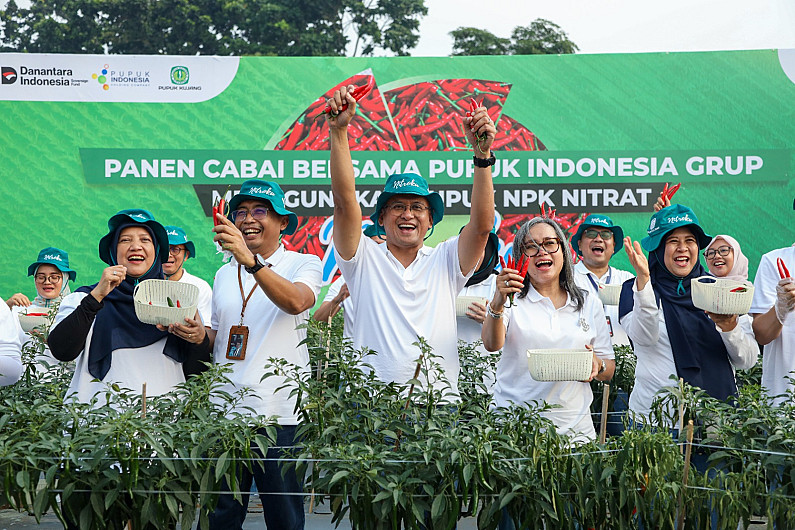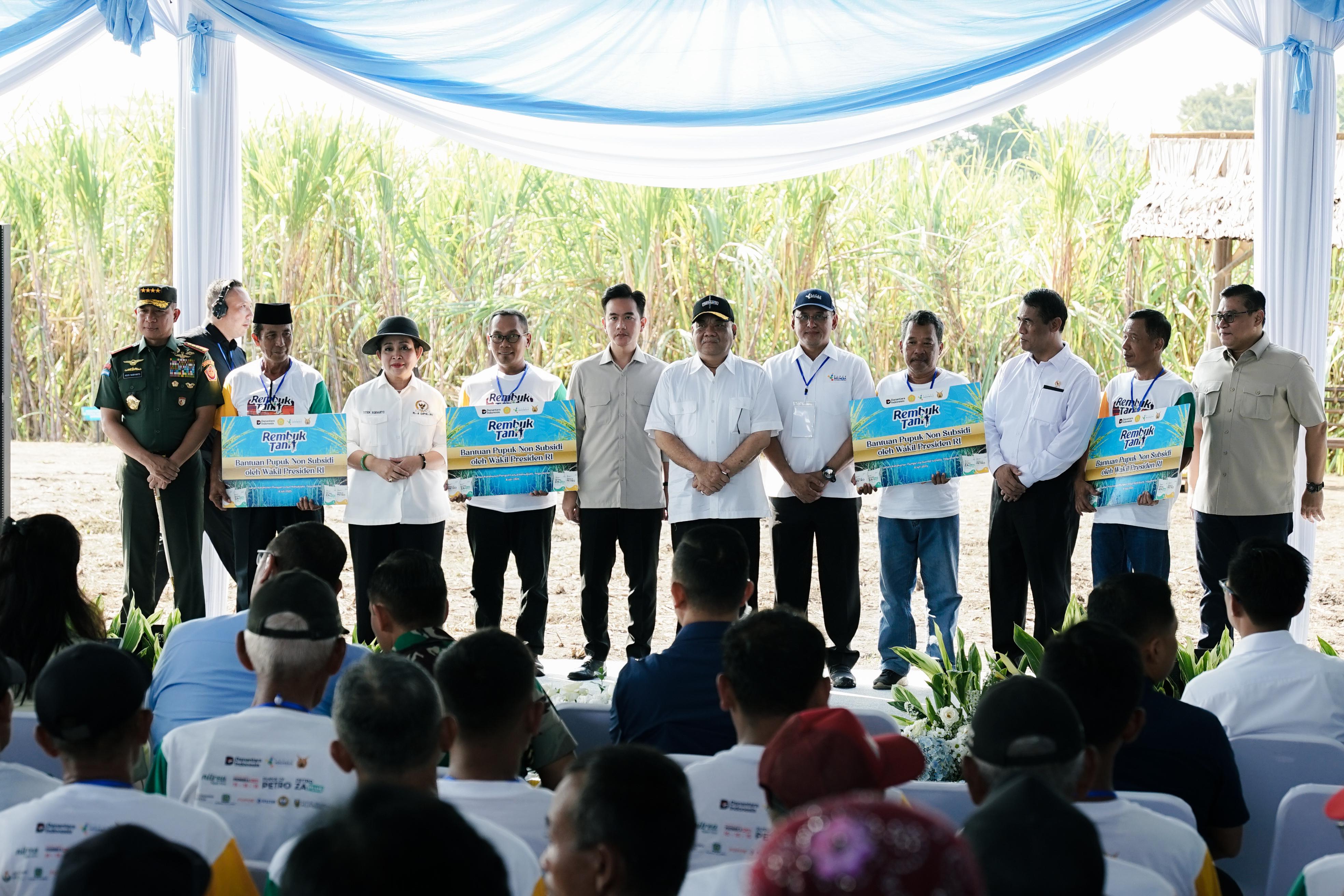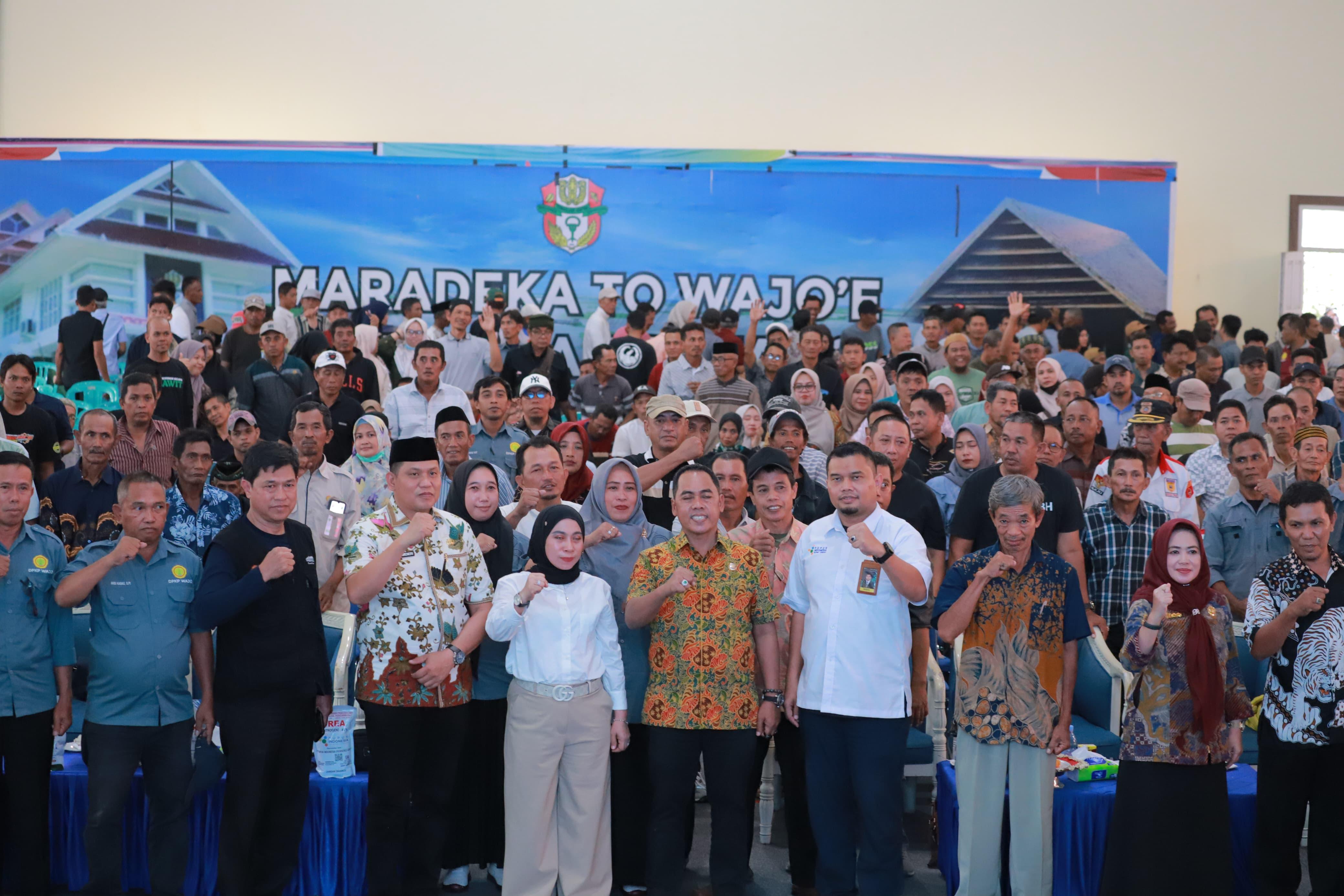Pupuk Indonesia Boosts Horticultural Farmers’ Productivity Through New Nitrate-Based NPK Formula

Pupuk Indonesia, through its subsidiary Pupuk Kujang Cikampek, has introduced a new nitrate-based NPK formula. The fertilizer, formulated with a 15-13-18 composition, has proven effective in increasing the productivity of shallot and chili crops—even during the rainy season.
During a farmers’ gathering at the Kujang Kampioen Research Garden in Cikampek, Karawang, West Java, on Sunday (June 22, 2025), the President Director of PT Pupuk Indonesia (Persero) stated that the Pupuk Indonesia Group will continue to innovate to support increased productivity among farmers. He emphasized that improving farmers’ welfare hinges on increasing agricultural productivity.
“We are pushing for modern agriculture through the concept of precision farming, which involves using fertilizers that are suited to specific crops and locations. This nitrate-based NPK is one of the innovations from Pupuk Indonesia Group that can support the development of agriculture in Indonesia,” said Rahmad.
Rahmad explained that the new nitrate-based NPK formula produced by Pupuk Kujang is the first domestically-produced nitrate-based fertilizer. Until now, all nitrate-based fertilizers used by horticultural farmers in Indonesia have been imported—totaling around 350,000 tons annually at the national level.
“Food security isn't just about higher output—it also depends on input. Imagine if output increases but all inputs are imported—our food security wouldn’t be strong. This innovation is tangible proof of our commitment to contributing actively and solidifying our role as a pillar of national food security,” he affirmed.
At the same event, the President Director of PT Pupuk Kujang, Maryono, explained that imported nitrate fertilizers used by shallot farmers have typically required additional fertilizer supplements. In contrast, this new NPK Nitrate formula can be applied without additional fertilizers and is suitable for use in various seasons.
“Nitrate-based fertilizers usually need to be supplemented with KCl to optimize shallot yields. That’s why our team at Pupuk Kujang developed a new formulation, making application more efficient and effective while optimizing results. NPK Nitrate can replace traditional nitrate fertilizers and their required mixes,” he said.
Based on results from demonstration plots, NPK Nitrate increased chili yields by 6% and shallot yields by 9%. Farmer profits also rose—by 4.9% for chili and 9.5% for shallots.
NPK Nitrate comes with an NPK specification of 15-13-18, containing 5% nitrate nitrogen (N–NO₃) and is enriched with micronutrients (Boron, Copper, Zinc). The product is available in green granular form and packaged in 20 kg and 2 kg bags.
This fertilizer is targeted specifically at horticultural crops—especially shallots and chilies—positioning NPK Nitrate as a complete-formula nitrate fertilizer.
The farmers’ gathering was attended by around 250 horticultural farmers from various regions, including Karawang, Purwakarta, Subang, Brebes, and East Java. It marked a significant step forward in supporting national food security through increased agricultural productivity.
Dian Alex Chandra, Chairman of the Indonesian Shallot Farmers Association (ABMI), stated that NPK Nitrate is a breakthrough solution for shallot farmers. One of the key challenges for these farmers has been the need to use various types of fertilizer depending on weather conditions—for example, using high-nitrogen fertilizers during the dry season, and reducing nitrogen during the rainy season.
“There’s also a difference in fertilization between lowland and highland shallot crops. With NPK Nitrate, it’s a one-time application—Alhamdulillah, it works,” he said.
Alex added that the nitrate fertilizers previously used by shallot farmers in Indonesia were all imported and thus susceptible to global market fluctuations. He expressed hope that local production of NPK Nitrate would make the product more affordable.
He also noted that using NPK Nitrate helps shallot crops withstand extreme weather, addressing farmers’ concerns about planting during the rainy season.
“Usually, demo plots are conducted during the dry season. But the NPK Nitrate demo plot in Brebes was done in the rainy season. That was a major challenge—and Alhamdulillah, the harvest succeeded. Farmers who used other fertilizers had poor harvests, while those who used NPK Nitrate were successful,” he concluded.







